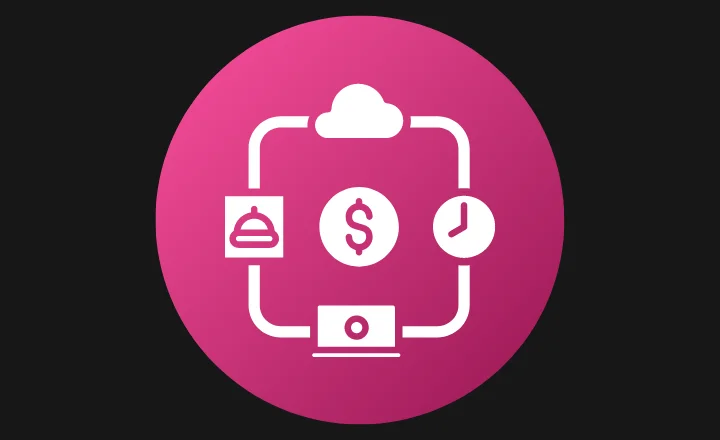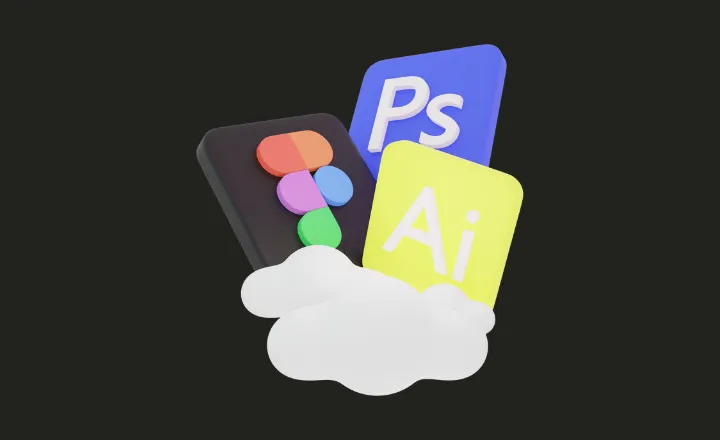Its 2023, everyone wants to earn money and want to be independent. But how to do that? It is a question.
One of the most easy, trending and full of experience way to make money is by doing Freelancing.
You might heard about the word Freelancing and Freelancers. The one who does freelancing is called a freelancer. Yeah that sounds so simple.
But how to start a freelancing and advance into the freelancing world. This is a whole game changing. In this guide we will share with you what is freelancing? How you can be a freelancer? What are the Pros and Cons of freelancing? And also freelancing Tips.
Lets get into it.
What is freelancing?

Freelancing is a great way to be your own boss and have more control over your work-life balance. Instead of working for a company, you work for yourself and find your own clients. This means you can set your own hours, work from anywhere, and take on projects that you’re passionate about.
There are many different types of freelancing, so there’s sure to be something out there that’s a good fit for your skills and interests. Some common freelance jobs include:
- Writing and Editing
- Graphic design
- Web development
- Programming
- Marketing
- Consulting
If you’re thinking about freelancing, there are a few things you should keep in mind:
- Set your rates carefully. It’s important to charge enough to cover your expenses and make a profit.
- Be professional and reliable. Clients are more likely to hire you again if you deliver high-quality work on time.
- Market yourself effectively. Let people know about your skills and experience so you can find new clients.
- Network with other freelancers. This can help you get new clients, learn new skills, and stay up-to-date on industry trends.
Freelancing can be a great way to build a successful career on your own terms. If you’re looking for more freedom and flexibility in your work life, freelancing may be the right choice for you.
Here are some examples of freelancers:
- A writer who writes blog posts, articles, and books.
- A graphic designer who creates logos, websites, and marketing materials.
- A web developer who builds websites and web applications.
- A programmer who writes code for software programs.
- A marketer who creates marketing campaigns and strategies.
- A consultant who provides advice and expertise to businesses.
These are just a few examples of the many different types of freelancers out there. If you have a skill or talent that you can offer to others, you can probably find a way to make a living as a freelancer. One of the best freelancing platform is Fiverr that is best for beginners.
Why should you consider freelancing?

Freelancing has become an increasingly popular career choice for many individuals due to its unique benefits.
One of the most significant advantages is the freedom to work from anywhere in the world, including the comfort of your own home, a coffee shop, or even while traveling.
This can be especially advantageous for individuals with family responsibilities or those who want to work while exploring different parts of the world.
Another benefit of freelancing is the flexibility it offers in terms of work schedules. Freelancers have the liberty to choose their own work hours, work on projects they prefer, and take time off whenever necessary.
This can be particularly beneficial for individuals with other commitments, such as caring for children or elderly relatives.
Moreover, freelancing provides a better work-life balance, allowing individuals to work fewer hours or take time off whenever they require it. This can help reduce stress levels and improve the overall quality of life.
There are numerous examples of freelancers who specialize in various fields, such as journalism, graphic design, marketing, and financial support. Freelancing can be an excellent way to turn your skills and interests into a fulfilling career.
However, freelancing also has its challenges. Freelancers must find their own clients and manage their finances, which can be a daunting task.
In addition, they may have to cope with irregular income and the absence of benefits that come with traditional employment.
Overall, freelancing can be an excellent career choice for those who value independence, flexibility, and work-life balance.
If you’re considering freelancing, it’s essential to weigh the pros and cons carefully and to be prepared for the responsibilities that come with being your own boss.
The benefits of freelancing

Freelancing offers a number of benefits, including:
Flexibility: Freelancers can set their own hours and work from anywhere. This can be a great perk for people who want to have more control over their work-life balance.
Autonomy: Freelancers have the freedom to choose their own clients and projects. This can be a great way to find work that you’re passionate about and that fits your skills and interests.
Potential for higher earnings: Freelancers can often charge more than employees for their services. This is because they are not tied to a company’s salary structure and can negotiate their rates based on their skills and experience.
Personal development: Freelancing can help you develop new skills and knowledge. As a freelancer, you’ll be constantly learning new things in order to stay ahead of the curve and provide your clients with the best possible service.
The challenges of freelancing

Freelancing can be a great way to be your own boss and have more control over your work-life balance. However, it also comes with some challenges.
One of the biggest challenges of freelancing is finding clients. When you’re not working for a company, you have to find your own work. This can be time-consuming and challenging, especially if you’re just starting out.
Another challenge of freelancing is managing your time. When you’re your own boss, it’s easy to let things slide. You have to be disciplined and organized in order to stay on top of your work.
Freelancers also have to deal with the challenge of self-promotion. You have to let people know about your skills and experience so that they can hire you. This can be done through networking, social media, and online job boards.
Finally, freelancers have to be prepared for the ups and downs of the economy. When the economy is bad, it can be harder to find clients. Freelancers need to have a financial cushion in place to weather these tough times.
Despite the challenges, freelancing can be a rewarding experience. If you’re self-motivated and have the skills and experience to be successful, freelancing can be a great way to build a career on your own terms.
Here are some tips for overcoming the challenges of freelancing:
- Network with other freelancers. This is a great way to find new clients, learn new skills, and stay up-to-date on industry trends.
- Be organized and disciplined. When you’re your own boss, it’s important to be able to manage your time and stay on top of your work.
- Promote yourself effectively. Let people know about your skills and experience so that they can hire you.
- Have a financial cushion. Freelancers need to be prepared for the ups and downs of the economy.
By following these tips, you can increase your chances of success as a freelancer.
How to get started as a Freelancer

If you’re considering becoming a freelancer, there are several important steps you should take to get started.
Freelancing can be a rewarding career choice that offers greater flexibility and autonomy than traditional employment, but it also requires careful planning and preparation.
By following a few key steps, you can launch your freelance career with confidence and set yourself up for success.
Whether you’re a writer, graphic designer, or software developer, these tips can help you navigate the process of becoming a successful freelancer.
Choose a freelance niche

Choosing a freelance niche is one of the most important decisions you’ll make when starting your freelance business. Your niche will determine the types of clients you work with, the types of projects you take on, and the rates you can charge.
There are many factors to consider when choosing a freelance niche, including your skills and interests, the demand for your skills, and your earning potential.
Here are a few tips for choosing a freelance niche:
Start with your skills and interests. What are you good at? What do you enjoy doing? Your skills and interests will be the foundation of your freelance business.
Consider the demand for your skills. What are the needs of your target market? Are there enough potential clients out there who need your services?
Research your earning potential. What are other freelancers in your niche charging for their services? Can you charge a similar rate?
Once you’ve considered these factors, you can start narrowing down your choices. Here are a few popular freelance niches:
- Writing and Editing
- Graphic design
- Web development
- Programming
- Marketing
- Consulting
These are just a few of the many freelance niches that are available. With a little research, you can find a niche that’s a good fit for your skills, interests, and earning potential.
Here are some additional tips for choosing a freelance niche:
- Don’t be afraid to niche down. It’s better to be a specialist in one area than a generalist in many areas.
- Choose a niche that’s growing. You want to choose a niche that has a lot of potential for growth.
- Be prepared to learn new things. The freelance world is constantly changing, so you need to be prepared to learn new things in order to stay ahead of the curve.
By following these tips, you can choose a freelance niche that will help you succeed in your freelance business.
Build your portfolio
Building a portfolio is an important part of any freelancer’s career. It’s a way to showcase your skills and experience to potential clients, and it can help you land more work.
There are a few things you need to do to build a strong portfolio:
- Choose the right format. There are a few different ways to format your portfolio. You can create a website, a blog, or a PDF. The best format for you will depend on your skills and experience, and the type of work you do.
- Include high-quality samples of your work. Your portfolio should be filled with high-quality samples of your work. Make sure that the samples are relevant to the type of work you want to do, and that they are well-presented.
- Write clear and concise descriptions of your work. Each sample in your portfolio should be accompanied by a clear and concise description. This will help potential clients understand what you did, and why it’s relevant to their needs.
- Get feedback from others. Once you’ve created your portfolio, ask friends, family, or colleagues to give you feedback. This will help you identify any areas that need improvement.
Here are some additional tips for building a strong portfolio:
- Keep your portfolio up-to-date. As you add new work to your portfolio, be sure to update it regularly. This will ensure that your portfolio is always current and relevant to your target market.
- Promote your portfolio. Once you’ve created your portfolio, be sure to promote it to potential clients. You can do this by sharing it on social media, submitting it to job boards, and networking with other professionals in your field.
- Be patient. It takes time to build a strong portfolio. Don’t get discouraged if you don’t see results overnight. Just keep working hard, and eventually, you’ll start to see results.
Set up your freelance business
Setting up a freelance business can be a daunting task, but it doesn’t have to be. By following these steps, you can get your business up and running in no time.
- Choose a business name and structure. Your business name should be something that is easy to remember and relevant to your services. You can choose to operate your business as a sole proprietorship, partnership, limited liability company (LLC), or corporation. The type of business structure you choose will affect your taxes and liability.
- Get the necessary permits and licenses. The requirements for permits and licenses vary depending on your location and the type of business you are starting. You can usually find information about the requirements on your state’s website.
- Set up a business bank account and credit card. This will help you keep your personal and business finances separate.
- Get insurance. There are a few different types of insurance that you may need, such as liability insurance and health insurance.
- Create a website and online presence. Your website is your online storefront, so it’s important to make it look professional and informative. You should also create social media accounts and start networking with other freelancers and potential clients.
- Market your business. There are a number of ways to market your business, such as online advertising, networking, and public relations.
- Set rates and terms. You need to decide how much you will charge for your services and what terms you will offer, such as payment terms and cancellation policies.
- Get organized and stay on top of your work. It’s important to be organized and stay on top of your work when you’re a freelancer. This includes tracking your time, managing your finances, and communicating with clients.
- Take care of yourself. It’s important to take care of yourself both physically and mentally when you’re a freelancer. This includes getting enough sleep, eating healthy, and exercising.
By following these steps, you can set up your freelance business and start working towards your goals.
Find clients
Finding clients is one of the most important challenges that freelancers face. There are a number of ways to find clients, but the most effective methods will vary depending on your skills, experience, and niche.
Here are a few tips for finding clients:
- Network with other freelancers and professionals in your field. This is a great way to meet potential clients and learn about job opportunities.
- Use online job boards and marketplaces. There are a number of online job boards and marketplaces that list freelance jobs.
- Reach out to businesses directly. If you know of a business that could benefit from your services, reach out to them directly and introduce yourself.
- Offer free trials or samples of your work. This is a great way to get potential clients interested in your work and to build your portfolio.
- Be patient. It takes time to build a steady stream of clients. Don’t get discouraged if you don’t see results overnight. Just keep working hard, and eventually, you’ll start to see results.
Manage your time and finances
As a freelancer, managing your time and finances is crucial to the success of your business. Here are some tips to help you stay organized and on top of your workload:
Create a schedule: Set specific work hours and stick to them as much as possible. This will help you stay focused and avoid distractions during your workday.
Use a project management tool: Consider using a project management tool such as Trello or Asana to track your projects, deadlines, and client communications.
Set realistic deadlines: When agreeing on deadlines with clients, make sure to give yourself enough time to complete the project to the best of your ability. Avoid overcommitting and underdelivering.
Track your time: Use a time-tracking tool to keep track of how much time you spend on each project. This will help you accurately bill clients and identify areas where you can improve your productivity.
Create a budget: Set a budget for your business expenses and track your income and expenses regularly. This will help you avoid financial stress and ensure that you are meeting your financial goals.
Tips for Success as a Freelancer
Freelancing can be an incredibly fulfilling and rewarding career path, but it requires hard work, dedication, and a strategic approach to succeed.
If you’re considering taking the leap into the world of freelancing, here are some essential tips to help you succeed.
Network with other freelancers
Networking with other freelancers can offer many benefits to your freelance career.
By connecting with other professionals in your field, you can gain valuable insights into the industry, exchange tips and advice, and learn about new opportunities.
Joining online communities or attending events can help you build relationships and expand your professional network.
Stay up-to-date on industry trends
To remain competitive in your field, it is crucial to stay up-to-date on industry trends and changes. Follow industry leaders, read relevant blogs and publications, attend webinars or conferences, and consider taking courses to stay current with new technologies and best practices. This will help you offer the most relevant and cutting-edge services to your clients.
Market your services effectively
Effective marketing is essential to attract new clients and grow your freelance business.
Develop a strong brand identity that represents your values and skills, create a professional website that showcases your portfolio, and use social media to promote your services and engage with potential clients.
Consider investing in advertising or hiring a marketing professional to help you reach a wider audience.
Deliver high-quality work
Delivering high-quality work is essential to building a strong reputation and attracting repeat business.
Always aim to exceed client expectations, pay close attention to their needs, and provide regular updates throughout the project.
Use high-quality tools and equipment, and stay organized to ensure that your work is of the highest possible standard.
Build relationships with clients
Building strong relationships with clients is key to building a sustainable freelance business. Communicate regularly, listen to their needs, and be responsive to feedback.
Go above and beyond to exceed their expectations and earn their trust, and consider offering discounts or incentives to encourage repeat business.
Be professional and reliable
Professionalism and reliability are essential qualities for any successful freelancer. Always meet deadlines, respond promptly to messages, and maintain a positive and professional attitude.
Be transparent and honest in your communication, and be prepared to handle any issues that may arise in a timely and professional manner. By doing so, you can build a strong reputation and establish yourself as a trusted and reliable freelancer.
Conclusion
The future of freelancing is bright. More and more people are choosing to freelance, and the demand for freelance services is growing. There are a number of factors that are driving the growth of freelancing, including:
- The rise of the internet. The internet has made it easier than ever for freelancers to connect with clients and find work.
- The need for flexibility. Many people are looking for more flexibility in their work, and freelancing can offer that.
- The desire for independence. Many people want to be their own boss, and freelancing can give them that freedom.
Resources
There are a number of resources available to freelancers, including:
Online job boards: There are a number of online job boards that list freelance jobs.
Freelance communities: There are a number of online communities where freelancers can connect with each other, share advice, and find work.
Freelance training programs: There are a number of training programs that can help freelancers learn the skills they need to succeed.
Freelance tools and resources: There are a number of tools and resources that can help freelancers manage their businesses, track their time, and get paid.
If you’re thinking about freelancing, there are a number of things you can do to prepare. First, you need to decide what you want to freelance in.
Once you know what you want to do, you need to build your skills and experience.
You can do this by taking online courses, attending workshops, and volunteering. Once you have the skills and experience you need, you can start looking for clients.
There are a number of ways to find clients, including online job boards, freelance communities, and networking.
